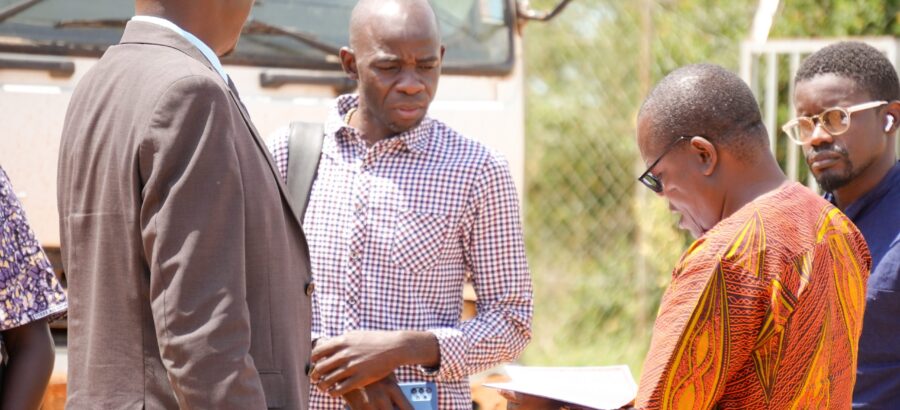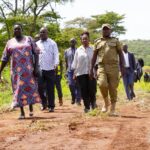June 30 – July 4, 2025 (Kaabong District, Uganda): IGAD Centre for Pastoral Areas and Livestock Development (ICPALD), is conducting a mission in Kaabong District, Uganda, to supervise and document the clearance of the Usake–Newkuch road and rehabilitation of a grain storage facility. These activities are part of the Sustainable Ecosystem Management (SEM) Project, supported by the Swedish International Development Cooperation Agency (SIDA).
SEM Project aims to enhance the resilience of pastoralist and agro-pastoralist communities through sustainable management of shared rangelands in cross-border areas. It is being implemented in selected ecosystems, including the Kaabong (Uganda)–Kapoeta East (South Sudan) corridor, which is critical for pastoral mobility and livelihoods.
A key focus of the mission is the clearance of a 62-kilometre road linking Usake in Morungole Parish, Kaabong District, to Newkuch at the border with Kapoeta East County in South Sudan. This road, which traverses challenging mountainous terrain, is vital for improving market access, trade, humanitarian movement, peacebuilding, security, and access to water and pasture for pastoral communities. The work is being implemented by the Kaabong District Local Government under a Joint Deed of Undertaking through a Force Account arrangement, promoting local ownership and sustainability.
Led by Dr Wamalwa Kinyanjui, Animal Health Expert at ICPALD, the mission’s goal is to ensure timely mobilisation of equipment, monitor construction progress, and document the current status of the road and grain store for purposes of comparison after completion. Additionally, the mission is also engaging local leaders and communities to ensure the project aligns with their needs, and overseeing the rehabilitation of a grain storage facility in Morungole to improve food storage, reduce post-harvest losses, and strengthen food security for the local population.
These interventions contribute to improving governance of key transhumance routes and wildlife corridors, which are essential for securing livelihoods, promoting cross-border cooperation, and fostering sustainable economic growth, particularly for women and youth in the region.






